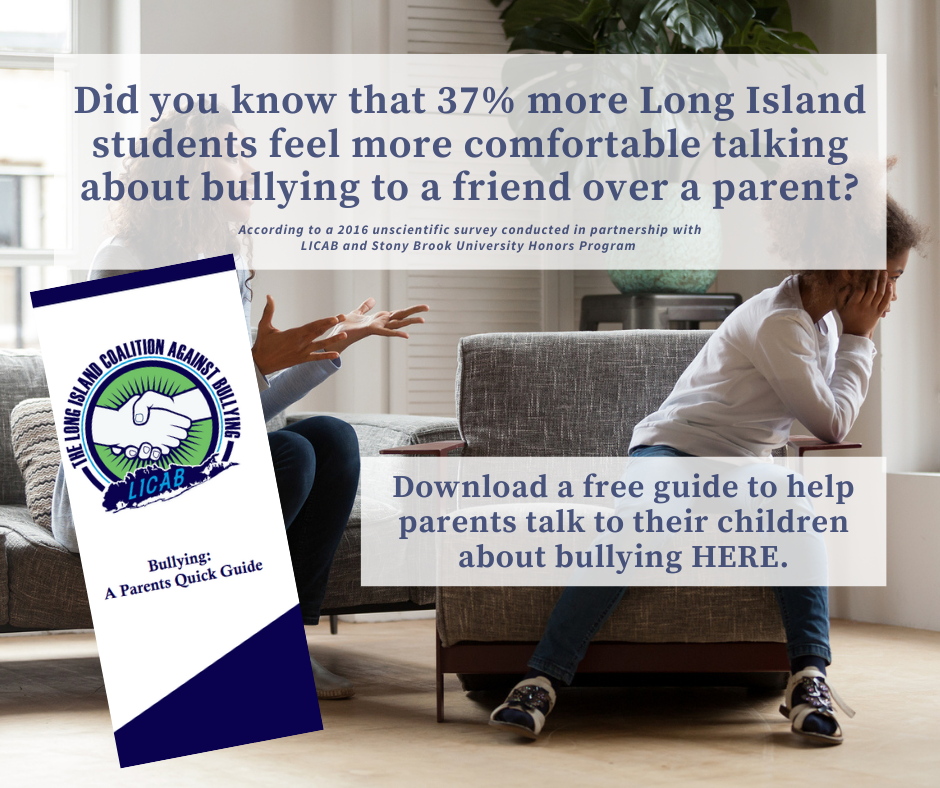What Can Parents Do?
No parent wants to see their child suffering, and more often parents are the last to find out about bullying experiences their child may be going through. It is important to know how to speak to a child about bullying so that they come across as non-judgmental and purely a safe and trusted person to confide in.
- Talk about bullying in conversation it tells your child that you are aware of it and you are interested in how it may affect them or their friends.
- Try to remain non-judgmental which may be difficult if your child confides in you that they are being bullied, but it is beneficial to react in a way that encourages the child to trust you even more. It can be helpful to start the conversation with something generic, possibly with a situation that you heard or found online and begin to ask curious, open-ended questions like:
- “What does bullying mean to you?”
- “Why do you think people bully?”
- “What does your school do about bullying?”
- “Whom would you talk to if you felt you were being bullied?” Remind them that they could always talk to you about bullying.
- Explain The Dignity for All Students Act (DASA) to your child. It is important that they know their rights and if they know that bullying is against a New York State Law, they may feel better reporting it or talking to you about it. You can add that cyberbullying is included in the law and explain that cyberbullying is anything mean or hurtful said online, inappropriate pictures being posted, hate pages or any method of hurting someone emotionally through any means of technology. Advise them that they can report bullying to any teacher or faculty member in school that they feel comfortable with and that you can schedule a meeting together.
If Your Child Tells You They Are Being Bullied
- If a child is being bullied it is of great importance for them to talk to someone about it. Difficult, hurtful, stressful feelings kept in can turn inward and lead to depression and/or anxiety. It is a huge protective factor for a child to have at least one non-judgmental adult to talk to.
- Create a safe environment for your child by listening non-judgmentally, giving him/her your undivided attention and offering words of support, such as “I am here for you” “Nobody has the right to make you feel that way” “I’m sorry you are going through this- you are not alone, although it may feel that sometimes.” Acknowledging their feelings will let them know their feelings are important and will not dismissed.
- Thank your child for confiding in you and let them know how much that means to you. Tell them you are proud of them for talking about their feelings, especially the hard ones. Reassure them that you are there to help.
- Before a child tells a parent about bullying, they have usually tried to ignore it or help themselves first, so it may not be helpful to tell them to stand up for themselves or ignore the person. When a child tells a parent about bullying they are looking for the parent to guide them to a solution that makes them feel empowered.
- By involving the child in the process, you are creating the feeling of empowerment and allowing them to be part of the solution.
- It is usually best to work through the school and not to call another parent.
- Let your child know that they are not alone and that there are many people who care. Explain that although bullying happens to many students- it is NEVER okay. You can look at the school page online to see who the DASA Coordinator is and ask your student if they know that person.


